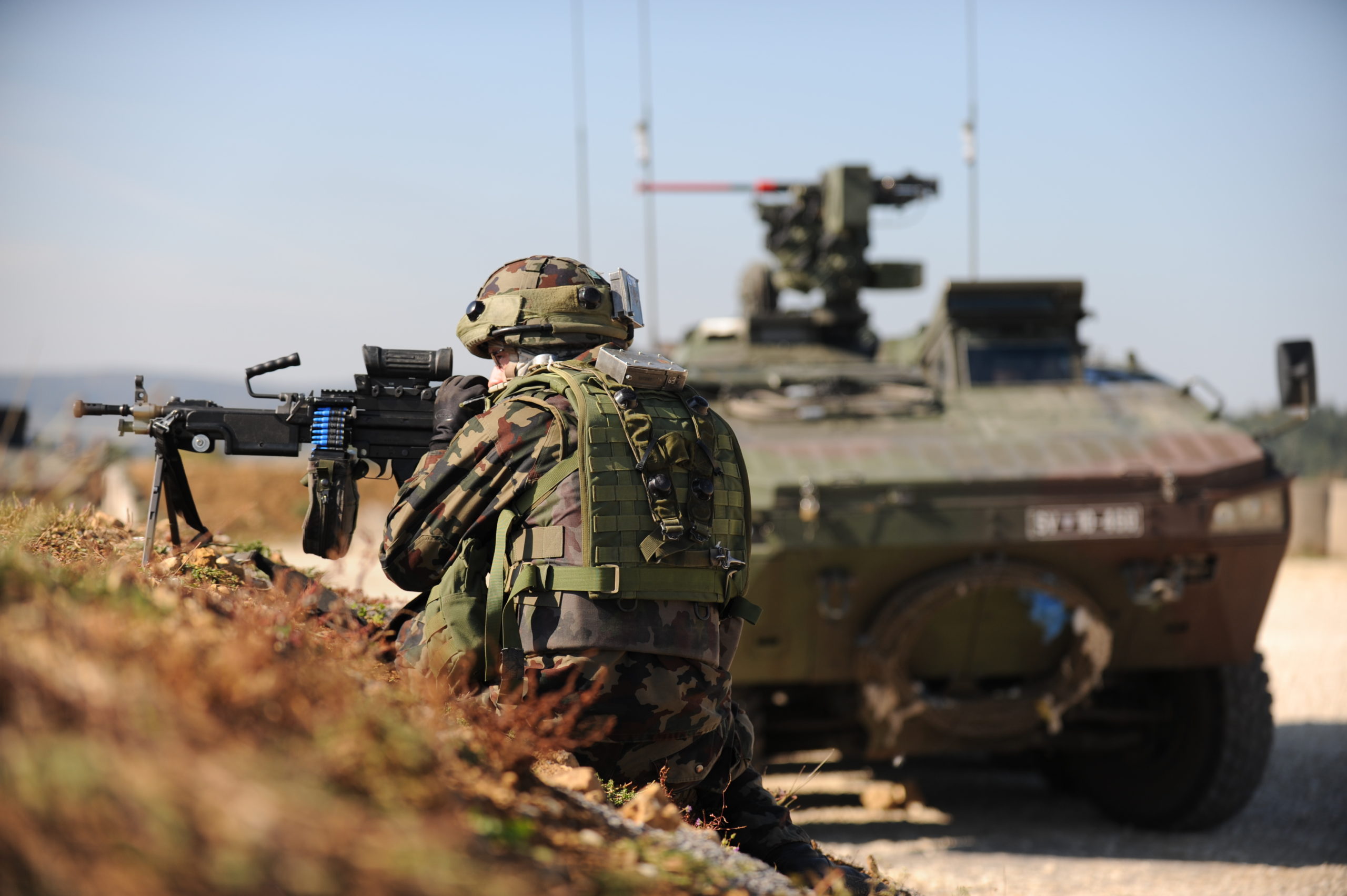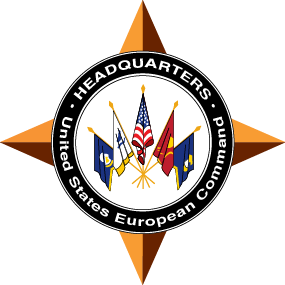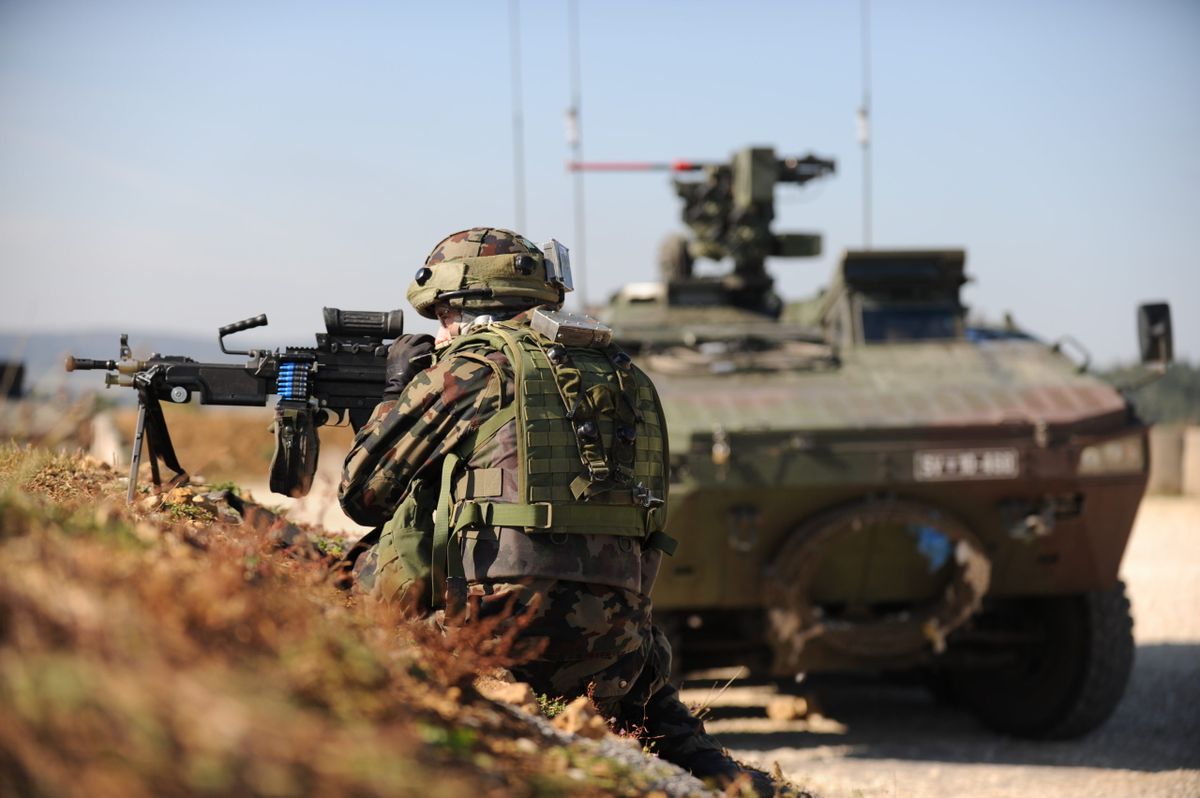
About
This year’s edition of Friends of Europe’s Peace, Security and Defence Summit was hosted simultaneously in Brussels (9.00-17.00 CEST) and Vilnius (10.00-18.00 EEST) to draw attention to the increasing security challenges and threats faced by NATO’s eastern flank from Russia and spotlight Vilnius as a host city of the upcoming NATO summit. To provide valuable inputs to the latter, this summit launched the ‘After the war: how to keep Europe safe’ study based on interviews and conversations with NATO, EU and national civilian and military officials, and defence experts, and shared recommendations on the coordination of NATO, EU and national efforts to avoid duplication and to acquire the required capabilities to secure the Euro-Atlantic area. The following questions were discussed:
- How should NATO adapt its deterrence and defence posture in the face of Russia’s aggression against Ukraine?
- What role is there for digital democracy in countering disinformation campaigns?
- What are potential scenarios of post-war development in Russia?
This event took place in Brussels, Belgium and Vilnius, Lithuania. It will also be available to a wider audience via livestream. Follow us on Twitter, LinkedIn, Instagram or Facebook, and join the #PSDSummit discussion!
Related content:
- After the war: how to keep Europe safe, by Paul Taylor
- Press release | “Putin will not give us time”, says former president of Lithuania in Friends of Europe’s summit
- Press release | Europe must stay the course for decade of defence, Friends of Europe report says
- From countering disinformation to cognitive self-determination, by Chris Kremidas-Courtney
- Peace, Security and Defence Summit – Europe after February 24th: how secure is it?
- Women building peace, women keeping peace
Our events include photos, audio and video recording that we might use for promotional purposes. By registering, you give your permission to use your image. Should you have any questions, please contact us.
PHOTO CREDIT: U.S. Army Europe /Flickr
Schedule
This session is by invitation only.
The high intensity fighting in Ukraine has brought to light the challenges that the defence industry faces in producing ammunition and weapons needed to supply the Ukrainian armed forces and help them to repel the Russian invaders, as well as restock NATO’s own depleted reserves. With Ukraine becoming increasingly dependent on the American and European arms industries, the current production rates of 155mm artillery shells, surface-to-air missiles and other weaponry are far from sufficient. Realising the gravity of the challenge, the EU has put in place several initiatives aimed at boosting the production and joint procurement of ammunition and military hardware, such as the Collaborative Procurement of Ammunition initiative administered by the European Defence Agency. In addition, NATO increased the alliance’s ammunition stockpiles targets through the NATO Defence Planning Process.
Held under the Chatham House Rule, this roundtable will bring together relevant policymakers, experts and industry representatives to share their perspectives and insights on the current state of the supply chain crisis and discuss potential solutions to ensure sustainable ammunition supplies to Kyiv and enhance NATO’s deterrence and defence posture.
Key questions include:
- How can NATO and the EU increase production rates of critical defence items, such as 155mm artillery shells, to ensure Ukraine has adequate supplies to repel Russia’s invasion?
- Are the initiatives like the Collaborative Procurement of Ammunition initiative, European Peace Facility and Ukraine Defence Contact Group sufficient to address issues around production and procurement?
- What steps are necessary to boost the production capabilities of Ukraine’s defence industry, and how can we ensure that this sector becomes more self-sufficient over time?
- How could defence companies from like-minded countries outside the Euro-Atlantic area, such as Japan, South Korea and Australia, be integrated into NATO and EU defence procurement mechanisms?
The Russian invasion of Ukraine is pushing European countries to think about how to ensure the safety of their citizens, as well as the respect of their territorial sovereignty. In ‘After the war: how to make Europe safe’, Friends of Europe’s Senior Fellow Paul Taylor explores how Europe should its defence, regardless of the final outcome of Russia’s invasion of Ukraine. He details the need for European countries to increase their defence spending and reshape their armed forces in order to prepare them for high-intensity warfare in Europe. Taylor also mentions what the EU and NATO can provide for the defence of Europe and how they should evolve to be the best tools for the continent’s defence.
Based on interviews with over 40 political, business and civil society leaders from the Euro-Atlantic community, as well as EU and NATO officials and regional experts, the study will make recommendations for an improved defence of Europe with tangible changes to European armed forces and the defence structure of European countries. The launch session will serve as a platform for key stakeholders and senior experts to debate and react to the report’s conclusions and recommendations, placing the spotlight on the key challenges highlighted in the study.
Key questions include:
- What will the strategic situation look like in Europe after Russia’s war against Ukraine?
- How much forward defence will NATO need to have on its eastern flank?
- Will the US remain as engaged in European security after the war or will it pull back to focus more on China?
- What should be the future division of labour between NATO and the EU?
Speakers
Paul Taylor
Senior Fellow for Peace, Security and Defence at Friends of Europe
Ruben-Erik Diaz-Plaja
Senior Policy Adviser at the Office of the Secretary General of NATO
Julianne Smith
Ambassador of the United States to NATO
Benedikta Von Seherr-Thoss
Managing Director for Security and Defence at the European External Action Service (EEAS)
Mantas Adomėnas
Vice-Minister of Foreign Affairs of Lithuania
Moderator
Jamie Shea
Senior Fellow for Peace, Security and Defence at Friends of Europe, and former Deputy Assistant Secretary General for Emerging Security Challenges at the North Atlantic Treaty Organization (NATO)
Russian and Chinese disinformation campaigns threaten security, stability and democratic institutions in the Baltics and Europe as a whole. While Russian disinformation campaigns have targeted a range of issues, including NATO’s enhanced Forward Presence (eFP), the rights of ethnic Russians and the legitimacy of the Baltic states themselves, Chinese disinformation has focused primarily on promoting China’s Belt and Road Initiative and other economic and diplomatic efforts in the region. The issue has risen to prominence in the context of Russia’s aggression against Ukraine, as the three countries are at the forefront of supporting the latter’s defence efforts. From analysing the nature and tactics of these campaigns to examining the role of media literacy and education, the panel will explore ways to enhance societal resilience and build a more informed, engaged public.
The session will also consider specific impacts of disinformation on vulnerable groups, including the ways in which they are disproportionately targeted and affected by false narratives and manipulation of information. Emphasising the need for a coordinated pan-European response, the panel will explore the similarities between disinformation campaigns in the Baltics and the rest of Europe, providing valuable insights into the potential for cross-regional exchange of best practices and policies on countering disinformation.
Key questions include:
- What are the most effective tactics for countering Russian and Chinese disinformation campaigns in the Baltics, and how can these tactics be adapted and applied to other parts of Europe?
- How can the latest legislative initiatives, such as the European Media Freedom Act or Digital Services Act, contribute to creating an information ecosystem that is trustworthy and reliable?
- How do Chinese disinformation campaigns compare to those of Russia in the context of the latter’s war against Ukraine?
- How can civil society organisations work to engage with marginalised communities?
Speaker
Rihards Bambals
Head of Strategic Communications at the State Chancellery of Latvia
Hanna Linderstål
CEO of the Earhart Business Protection Agency
Nerijus Maliukevičius
Researcher and Lecturer at the Institute of International Relations and Political Science
Delphine Colard
Head of the Spokesperson’s Unit and Deputy Spokesperson at the European Parliament
Karen Massin
Head of EU Government Affairs and Public Policy at Google
Moderator
Dharmendra Kanani
Chief Operating Officer and Chief Spokesperson of Friends of Europe
Amidst Russia’s brazen aggression against Ukraine, the Euro-Atlantic community faces not just the daunting prospect of war, but also the shrouded uncertainty of what the post-war reality might hold. Will Russia’s hostility simmer down or will it rear its ugly head once again? That is but one of the many unanswered questions that loom large. Equally vital to comprehend is the fact that the post-war world will not simply be a continuation of the past, but rather a new creation forged amidst the seismic geopolitical upheavals that our world currently grapples with, including the escalating tensions between China and the West across various domains and regions.
This panel debate seeks to shed light on the potential political, economic and social transformations that may unfold in post-war Russia and their ripple effects on the international arena, with a particular emphasis on the geopolitical scramble for the Arctic, the possible expansion of China and Turkey’s influence in Russia’s south and Central Asia, and the broader framework of future relations between NATO, the EU and Russia. The panel debate will also provide insights into the work of the high-level working group on the post-war future of Russia and Europe. This distinguished group was launched by Friends of Europe in partnership with the Kyiv-based Institute for Postinformation society.
Key questions include:
- Could the post-war era herald ‘Stalinization’ with a complete transformation of the system into a war mode, accompanied by heightened repression? Or will it pave the way for ‘Iranization’ with appeasement towards Ukraine, coupled with a clampdown on the regime in Russia?
- Amidst the evolving post-war landscape, what are the possibilities of Chinese and Turkish influence surging in southern Russia, Central Asia and the Caucasus?
- What does the future hold for Arctic cooperation and security amidst the new post-war reality?
- How will the Global South shape post-war international relations?
- How can NATO and the EU work together to effectively address the complex and multi-faceted challenges posed by Russia and China in the post-war world?
Speaker
James Appathurai
Deputy Assistant Secretary General for Innovation, Hybrid and Cyber at the North Atlantic Treaty Organization (NATO)
Kyllike Sillaste-Elling
Undersecretary for Political Affairs at Estonian Ministry of Foreign Affairs
Christopher Steele
Director and Co-Founder of Orbis and former head of the Russia desk at the Secret Intelligence Service (MI6)
Moderator
Margarita Šešelgytė
Director of the Institute of International Relations and Political Science at Vilnius University (IIRPS VU)
The four Baltic centres of excellence – NATO Cooperative Cyber Defence Centre of Excellence (CCDCEO) in Tallinn, NATO Strategic Communications Centre (StratCom) in Riga, NATO Energy Security Centre of Excellence (ENSEC) in Vilnius and the European Centre of Excellence for Countering Hybrid Threats (Hybrid CoE) in Helsinki – play a vital role in enhancing the ability of the EU, NATO and their member states to counter hybrid warfare campaigns, including the identification and analysis of hybrid threats, the development of effective strategies and responses, and the building of partnerships and networks to share knowledge and expertise.
The breakfast roundtable will bring together the representatives of the four centres for a captivating and insightful discussion, held under the Chatham House Rule, on the importance of a coordinated and integrated response to Russia’s aggression against Ukraine, as well as Russia’s hybrid campaigns against the Euro-Atlantic community as a whole. The debate will offer a critical reflection on the current use of strategic communications by the EU and NATO to counter Russian disinformation and propaganda, efforts to bolster energy security in Europe and policies aimed at enhancing European cyber-resilience.
Key questions include:
- What lessons have been learned from countering Russian disinformation and propaganda in the context of Russia’s war against Ukraine, and how can these lessons be applied in other contexts?
- How can we improve cooperation and coordination between the EU and NATO in countering hybrid threats, and what role can the four centres of excellence play in this regard?
- How can efforts to address climate change be more seamlessly integrated into broader strategies for reducing Europe’s dependence on Russian fossil fuels?
- How can public-private partnerships be leveraged to enhance cyber-security in Europe and mitigate the impacts of Russian cyber-attacks, and what are the most effective models for such collaboration?
The Russian invasion of Ukraine is pushing European countries to think about how to ensure the safety of their citizens, as well as the respect of their territorial sovereignty. In ‘After the war: how to make Europe safe’, Friends of Europe’s Senior Fellow Paul Taylor explores how Europe should its defence, regardless of the final outcome of Russia’s invasion of Ukraine. He details the need for European countries to increase their defence spending and reshape their armed forces in order to prepare them for high-intensity warfare in Europe. Taylor also mentions what the EU and NATO can provide for the defence of Europe and how they should evolve to be the best tools for the continent’s defence.
Based on interviews with over 40 political, business and civil society leaders from the Euro-Atlantic community, as well as EU and NATO officials and regional experts, the study will make recommendations for an improved defence of Europe with tangible changes to European armed forces and the defence structure of European countries. The launch session will serve as a platform for key stakeholders and senior experts to debate and react to the report’s conclusions and recommendations, placing the spotlight on the key challenges highlighted in the study.
Key questions include:
- What will the strategic situation look like in Europe after Russia’s war against Ukraine?
- How much forward defence will NATO need to have on its eastern flank?
- Will the US remain as engaged in European security after the war or will it pull back to focus more on China?
- What should be the future division of labour between NATO and the EU?
Speakers
Paul Taylor
Senior Fellow for Peace, Security and Defence at Friends of Europe
Ruben-Erik Diaz-Plaja
Senior Policy Adviser at the Office of the Secretary General of NATO
Julianne Smith
Ambassador of the United States to NATO
Benedikta Von Seherr-Thoss
Managing Director for Security and Defence at the European External Action Service (EEAS)
Mantas Adomėnas
Vice-Minister of Foreign Affairs of Lithuania
Moderator
Jamie Shea
Senior Fellow for Peace, Security and Defence at Friends of Europe, and former Deputy Assistant Secretary General for Emerging Security Challenges at the North Atlantic Treaty Organization (NATO)
Russian and Chinese disinformation campaigns threaten security, stability and democratic institutions in the Baltics and Europe as a whole. While Russian disinformation campaigns have targeted a range of issues, including NATO’s enhanced Forward Presence (eFP), the rights of ethnic Russians and the legitimacy of the Baltic states themselves, Chinese disinformation has focused primarily on promoting China’s Belt and Road Initiative and other economic and diplomatic efforts in the region. The issue has risen to prominence in the context of Russia’s aggression against Ukraine, as the three countries are at the forefront of supporting the latter’s defence efforts. From analysing the nature and tactics of these campaigns to examining the role of media literacy and education, the panel will explore ways to enhance societal resilience and build a more informed, engaged public.
The session will also consider specific impacts of disinformation on vulnerable groups. Emphasising the need for a coordinated pan-European response, the panel will explore the similarities between disinformation campaigns in the Baltics and the rest of Europe, providing valuable insights into the potential for cross-regional exchange of best practices and policies on countering disinformation.
Key questions include:
- What are the most effective tactics for countering Russian and Chinese disinformation campaigns in the Baltics, and how can these tactics be adapted and applied to other parts of Europe?
- How can the latest legislative initiatives, such as the European Media Freedom Act or Digital Services Act, contribute to creating an information ecosystem that is trustworthy and reliable?
- How do Chinese disinformation campaigns compare to those of Russia in the context of the latter’s war against Ukraine?
- How can civil society organisations work to engage with marginalised communities?
Speaker
Rihards Bambals
Head of Strategic Communications at the State Chancellery of Latvia
Hanna Linderstål
CEO of the Earhart Business Protection Agency
Nerijus Maliukevičius
Researcher and Lecturer at the Institute of International Relations and Political Science
Delphine Colard
Head of the Spokesperson’s Unit and Deputy Spokesperson at the European Parliament
Karen Massin
Head of EU Government Affairs and Public Policy at Google
Moderator
Dharmendra Kanani
Chief Operating Officer and Chief Spokesperson of Friends of Europe
Amidst Russia’s brazen aggression against Ukraine, the Euro-Atlantic community faces not just the daunting prospect of war, but also the shrouded uncertainty of what the post-war reality might hold. Will Russia’s hostility simmer down or will it rear its ugly head once again? That is but one of the many unanswered questions that loom large. Equally vital to comprehend is the fact that the post-war world will not simply be a continuation of the past, but rather a new creation forged amidst the seismic geopolitical upheavals that our world currently grapples with, including the escalating tensions between China and the West across various domains and regions.
This panel debate seeks to shed light on the potential political, economic and social transformations that may unfold in post-war Russia and their ripple effects on the international arena, with a particular emphasis on the geopolitical scramble for the Arctic, the possible expansion of China and Turkey’s influence in Russia’s south and Central Asia, and the broader framework of future relations between NATO, the EU and Russia. The panel debate will also provide insights into the work of the high-level working group on the post-war future of Russia and Europe. This distinguished group was launched by Friends of Europe in partnership with the Kyiv-based Institute for Postinformation society.
Key questions include:
- Could the post-war era herald ‘Stalinization’ with a complete transformation of the system into a war mode, accompanied by heightened repression? Or will it pave the way for ‘Iranization’ with appeasement towards Ukraine, coupled with a clampdown on the regime in Russia?
- Amidst the evolving post-war landscape, what are the possibilities of Chinese and Turkish influence surging in southern Russia, Central Asia and the Caucasus?
- What does the future hold for Arctic cooperation and security amidst the new post-war reality?
- How will the Global South shape post-war international relations?
- How can NATO and the EU work together to effectively address the complex and multi-faceted challenges posed by Russia and China in the post-war world?
Speaker
James Appathurai
Deputy Assistant Secretary General for Innovation, Hybrid and Cyber at the North Atlantic Treaty Organization (NATO)
Kyllike Sillaste-Elling
Undersecretary for Political Affairs at Estonian Ministry of Foreign Affairs
Christopher Steele
Director and Co-Founder of Orbis and former head of the Russia desk at the Secret Intelligence Service (MI6)
Moderator
Margarita Šešelgytė
Director of the Institute of International Relations and Political Science at Vilnius University (IIRPS VU)
Speakers
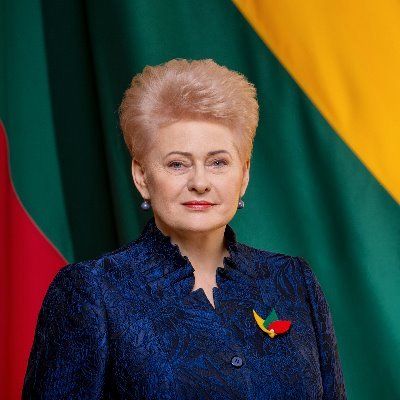
Former president of Lithuania and Trustee of Friends of Europe
The former president of Lithuania and European commissioner, Dalia Grybauskaitė currently serves as the Co-Chair of the United Nations High-Level Panel on International Financial Accountability, Transparency and Integrity (FACTI). Previously, she has chaired the Council of Women World Leaders and held several positions as a Lithuanian diplomat and politician, including as the country’s finance minister, as well as minister plenipotentiary at the Lithuanian embassy to the United States and at the Lithuanian Mission to the EU. Notably, Grybauskaitė played a key role in improving the relations between Lithuania and the EU as the deputy chief negotiator of Lithuania’s Association Agreement with the EU.

Director of the Institute of International Relations and Political Science at Vilnius University (IIRPS VU)
Margarita Šešelgytė is the Director of VU TSPMI, prior to which she served as its deputy director for studies. She has also been the deputy director of the Baltic Defence College and the Jonas Žemaitis Lithuanian Military Academy. She is an honorary member of the Baltic Defense College and sits on the boards of the Ares Group and the Baltic Defense College’s Baltic Security and Defense Review magazine. Her main research interests include EU foreign and security policy, security and defence studies, international relations and foreign policy analysis.
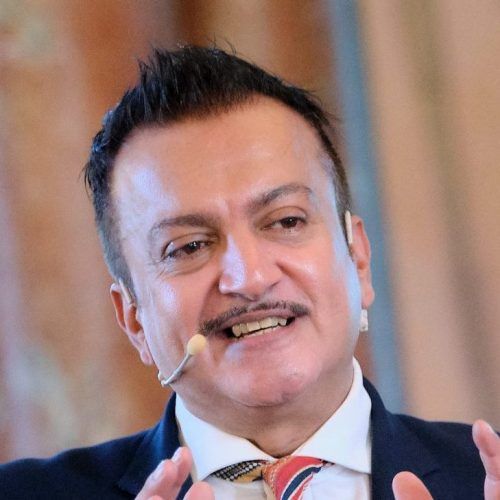
Chief Operating Officer and Chief Spokesperson of Friends of Europe
Prior to joining Friends of Europe, Dharmendra Kanani was director of policy at the European Foundation Centre (EFC). He was the England director at the Big Lottery Fund, the largest independent funder in the UK and fourth largest in the world. Dharmendra has held senior positions in the public and voluntary sectors and advisor to numerous ministerial policy initiatives across the UK.
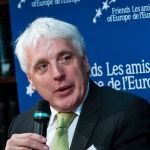
Senior Fellow for Peace, Security and Defence at Friends of Europe, and former Deputy Assistant Secretary General for Emerging Security Challenges at the North Atlantic Treaty Organization (NATO)
Retiring from NATO in September 2018 after 38 years at the organisation, Jamie Shea has occupied a number of senior positions at NATO across a wide range of areas, including external relations, press and media, and policy planning. As NATO’s spokesperson, he was the face of the alliance during the Bosnia and Kosovo conflicts. He later worked as the director of policy planning in the private office of former secretary general Rasmussen during the preparation of NATO’s 2010 Strategic Concept. Shea is also a regular lecturer and conference speaker on NATO and European security affairs.
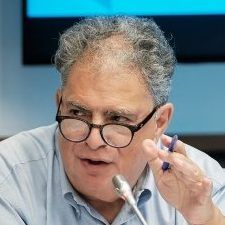
Senior Fellow for Peace, Security and Defence at Friends of Europe
Paul Taylor is a Senior Fellow at Friends of Europe and the author of the think tank’s European Defence Cooperation report series. He previously spent four decades working for Reuters as a foreign correspondent in Paris, Tehran, Bonn and Brussels, as bureau chief in Israel/Palestine, Berlin and Brussels, as chief correspondent in France, as diplomatic editor in London, and finally as European affairs editor. Taylor’s assignments have included covering the Iranian revolution, the Cold War Euromissile crisis, the 1991 Gulf War, German reunification, the Maastricht summit, France in the 1990s, EU enlargement, the Eurozone crisis and the fall of the Muslim Brotherhood government in Egypt.

Managing Director for Security and Defence at the European External Action Service (EEAS)
Before joining the EEAS, Benedikta von Seherr-Thoss has held several positions within the German Ministry of Defence, including as security policy director, head of the EU Division and coordinator of the German Presidency of the EU Council, and political advisor to then-Defence Minister Ursula von der Leyen. She has also worked for NATO at its Liaison Office to the UN, as well as in Afghanistan as the deputy director of policy and senior political advisor to the NATO Senior Civilian Representative in Afghanistan.
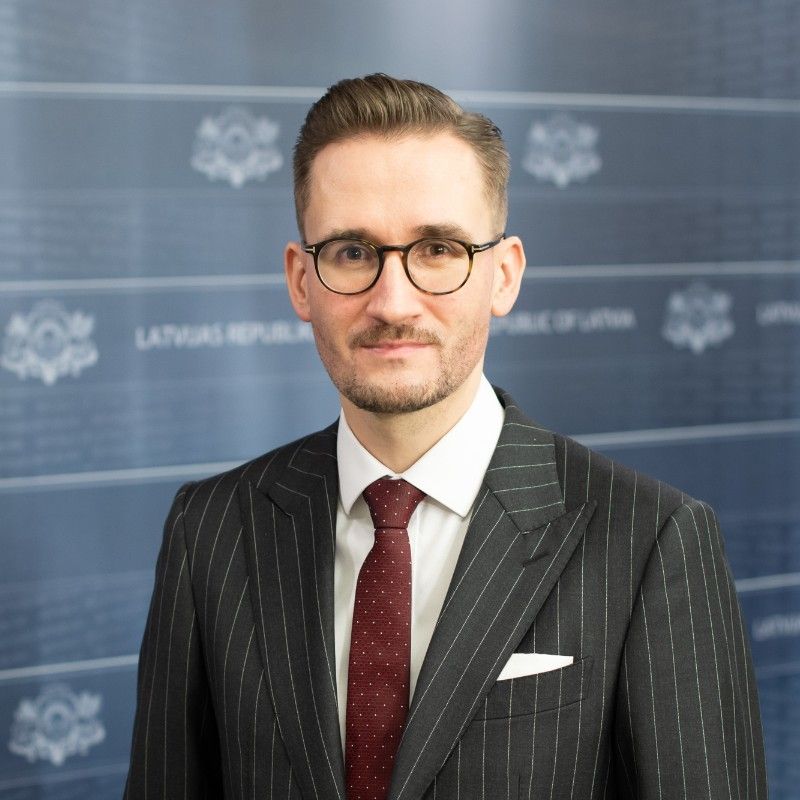
Head of Strategic Communications at the State Chancellery of Latvia
Rihards Bambals is the Head of Strategic Communications at the Latvian State Chancellery. Before returning to Latvia to apply his international know-how to build national StratCom capacities, Bambals served as a career diplomat for over a decade, gaining expert experience in foreign and security policy. Most notably, he was a seconded StratCom expert at the European External Action Service (EEAS) East StratCom Task Force and the Latvian Permanent Delegation to NATO. Bambals previously held the Tokyo Foundation’s Ryoichi Sasakawa Young Leaders Fellowship in recognition of his research on human security in Japan before and after the triple disaster of March 2011.
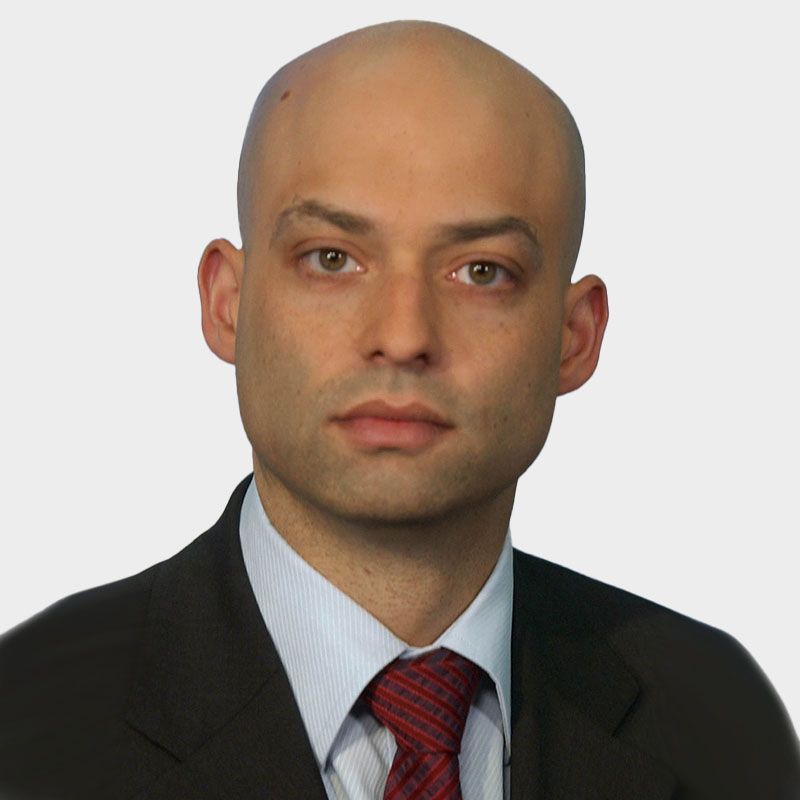
Deputy Assistant Secretary General for Innovation, Hybrid and Cyber at the North Atlantic Treaty Organization (NATO)
Prior to his current position, James Appathurai has served as the deputy assistant secretary general for political affairs and security policy, and as the NATO Secretary General’s special representative for the Caucasus and Central Asia. He has also held several other positions within NATO, including as NATO spokesperson and as deputy head and senior planning officer for the policy planning and speechwriting section of the political affairs division. Before joining NATO, he was a policy officer at Canada’s Department of Defence.
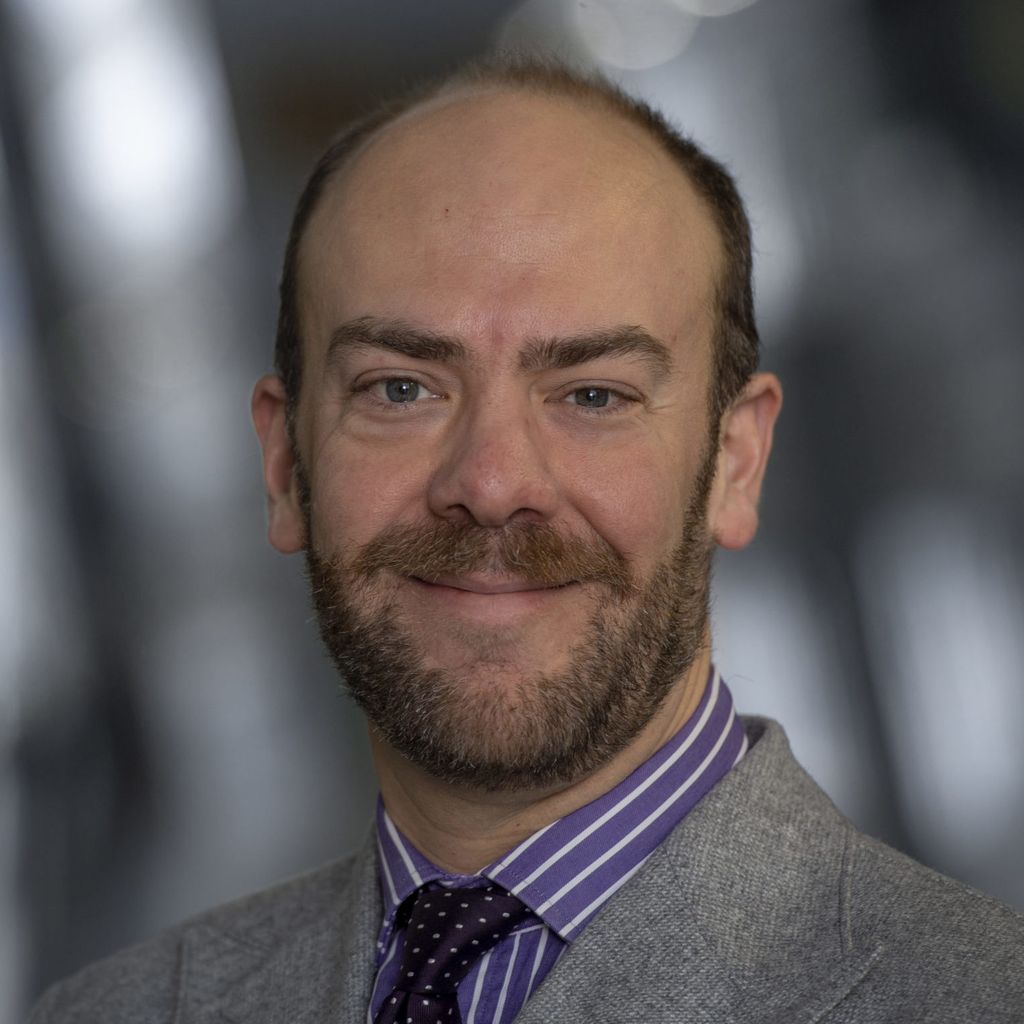
Senior Policy Adviser at the Office of the Secretary General of NATO
Ruben-Erik Diaz-Plaja is a Senior Policy Adviser in the Policy Planning Unit at the Office of the Secretary General of NATO in Brussels, where he contributes to developing, negotiating and implementing strategic policy priorities for the Secretary General, as well as conducting research and foresight. In this role, he has contributed to developing the 2022 Strategic Concept; the NATO 2030 agenda; the 2021 Climate Change and Security Action Plan; and a comprehensive reform of NATO HQ. Diaz-Plaja has also led work on NATO’s partnerships in the Political Affairs and Security Policy Division. He maintains 15 years of experience at the intersection of defence, security and democratic governance in the wider Euro-Atlantic region, including with the OSCE in Warsaw, Poland and Kosovo to build democratic institutions in eastern Europe and the Balkans.
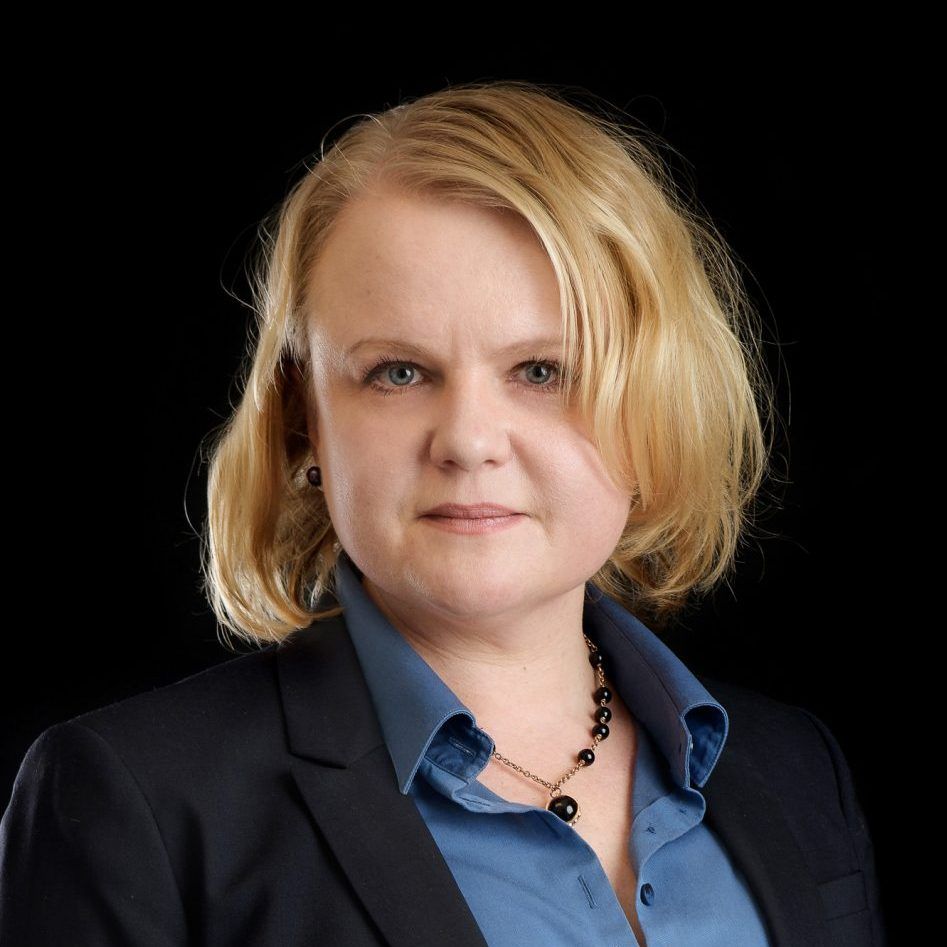
CEO of the Earhart Business Protection Agency
Hanna Linderstål is the CEO and Founder of Earhart Business Protection Agency, a cyber intelligence specialist agency that supports authorities, organisations and the private sector with management advisory regarding cyberthreats, disinformation, investigations, corporate education, as well as training in these matters. With over 25 years of experience in combatting digital and virtual threats, she has previously been an advisor for various government agencies and international organisations. Linderstål is active in the Council for Psychological Defence in Sweden and acts as Vice President of the Swedish Psychological Operations Association, a voluntary defence organisation.
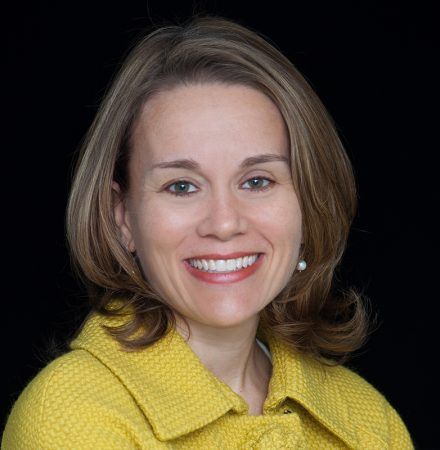
Ambassador of the United States to NATO
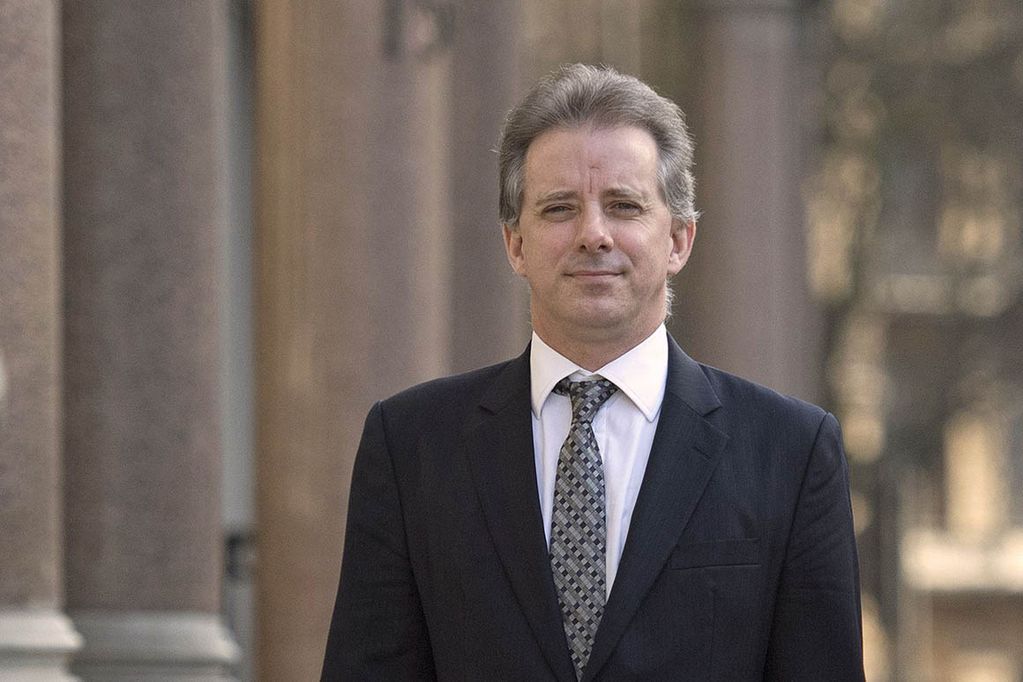
Director and Co-Founder of Orbis and former head of the Russia desk at the Secret Intelligence Service (MI6)
Prior to founding Orbis, Christopher Steele worked for the British Secret Intelligence Service for 22 years. At MI6, he led the Russia desk during his last years of service, prior to which he was senior officer at the MI6. Steele has previous experience at the Foreign and Commonwealth Office and several British embassies, including those in France and to the Federation of Russia.
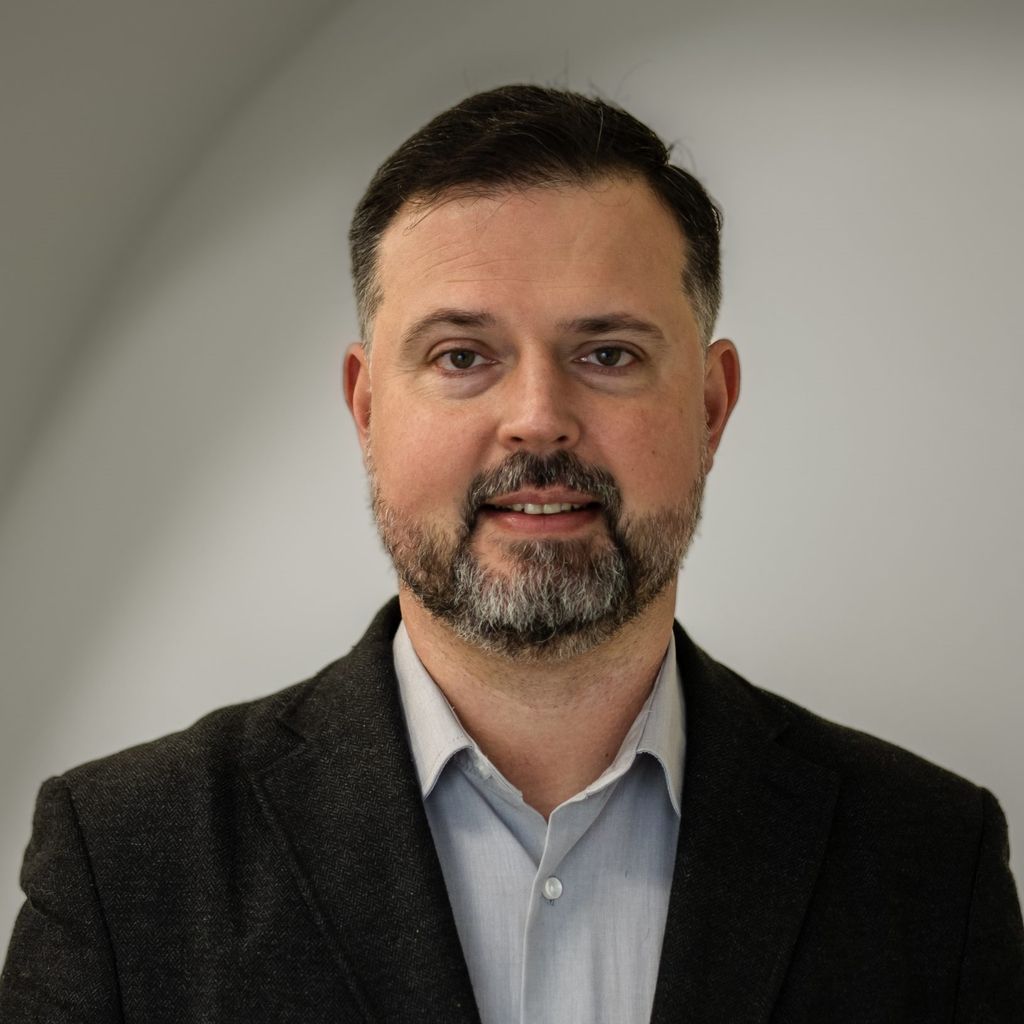
Researcher and Lecturer at the Institute of International Relations and Political Science
Dr Nerijus Maliukevičius lectures at the Institute of International Relations and Political Science, where his research focuses on information warfare, strategic communication, conflict management and Russian politics. He is the author of two books on Russian information warfare strategies. His doctoral dissertation focused mainly on the geopolitical potential of Russian information and its dissemination in Lithuania.
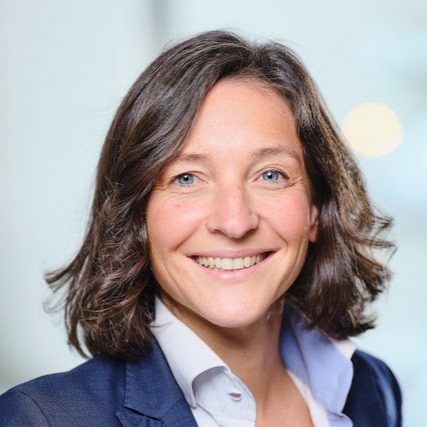
Head of EU Government Affairs and Public Policy at Google
Specialised in EU regulatory and public affairs, Karen Massin currently leads Google’s EU government affairs and public policy operations in Brussels. She previously served as the CEO of public affairs consultancy BCW in Brussels, in which role she coordinated government affairs and communication consultancy with a focus on EU and international policy, as well as provided policy council and intelligence on EU public affairs issues.
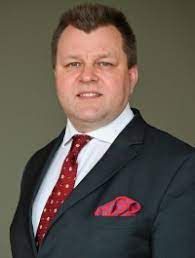
Vice-Minister of Foreign Affairs of Lithuania
At the Ministry of Foreign Affairs, Mantas Adomėnas supervises the shaping of Lithuania’s foreign affairs policy and the country’s role in multilateral institutions, as well as the neighbourhood policy and relations towards eastern Europe, Central Asia and the South Caucasus. Adomėnas is a former member of the Lithuanian parliament and has served as an advisor to the deputy speaker. Previously, he was a lecturer at the Universities of Cambridge and Vilnius, and has also served as the director of the international programme at the Civil Society Institute.
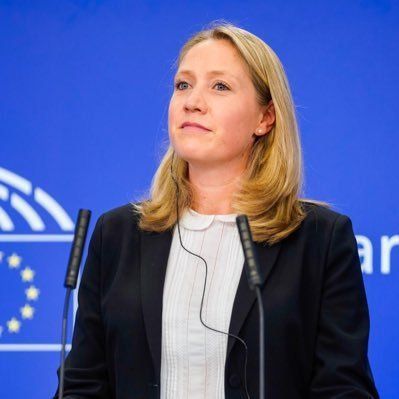
Head of the Spokesperson’s Unit and Deputy Spokesperson at the European Parliament
Prior to assuming her current position, Delphine Colard held several positions at the European Parliament, including as the press officer on institutional affairs and on Belgium. Before joining the European Parliament, she was the deputy spokesperson at the Belgian Ministry of Foreign Affairs. Colard has also worked at the Permanent Representation of Belgium to the EU on interinstitutional relations, in which role she was responsible for relations with the European Parliament.

Undersecretary for Political Affairs at Estonian Ministry of Foreign Affairs
Prior to assuming her current position, Kyllike Sillaste-Elling has held several positions at the Estonian Ministry of Foreign Affairs, including as director-general of the department for NATO and transatlantic relations, permanent representative of Estonia to NATO and director-general of the minister’s office. She has also worked as the undersecretary for political affairs and as deputy head of the Estonian embassy in the United States, as well as a foreign policy advisor to the Estonian prime minister and the first secretary at the Estonian embassy in the United Kingdom.
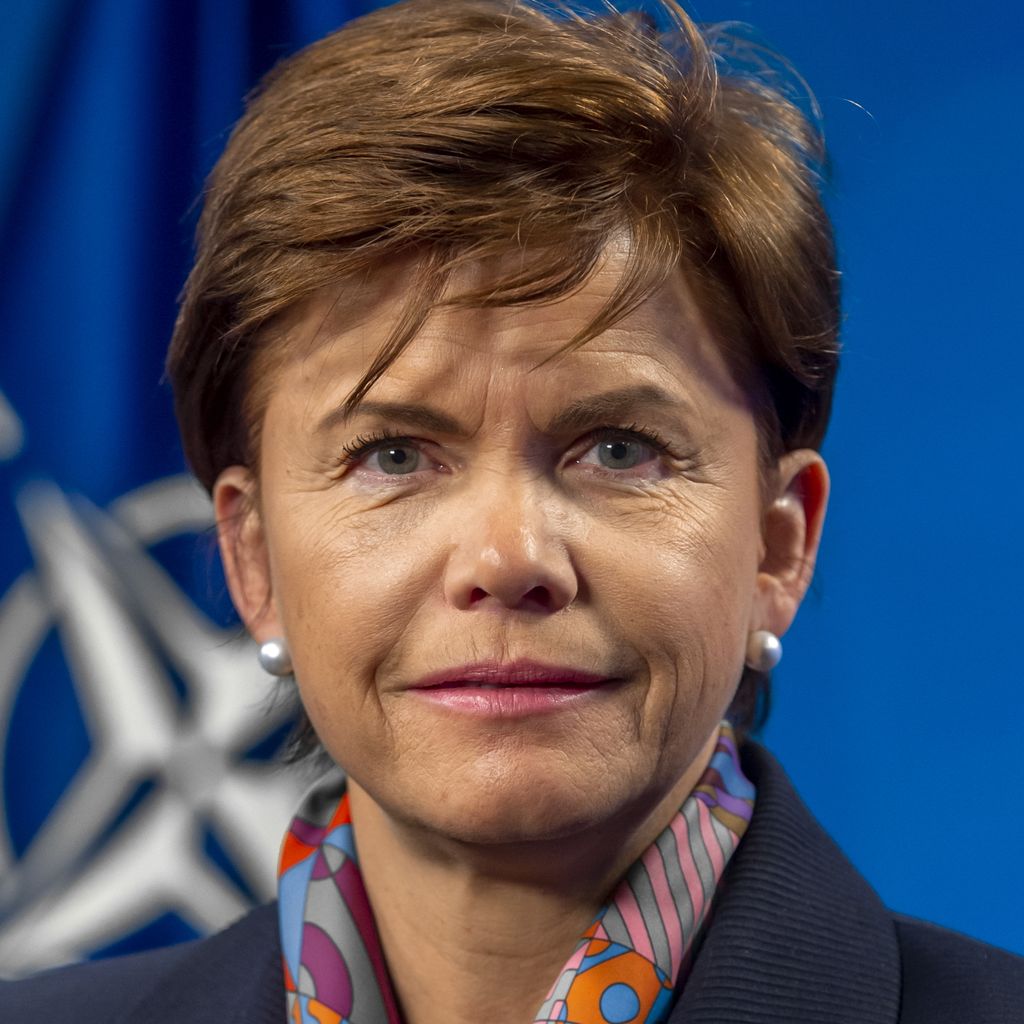
Assistant Secretary General for Public Diplomacy at NATO
Ambassador Baiba Braže is the head of the Public Diplomacy Division at NATO. Prior her current position, she was a Latvian diplomat and served as the Ambassador of Latvia to the United Kingdom. She has also held several positions at the Latvian Foreign Ministry as Director General on Security Policy and International Organizations and Director General of the Communications Directorate. She has also been appointed Latvia’s Ambassador to the Netherlands and Permanent Representative to the Organization for the Prohibition of Chemical Weapons. She was also the head of the Europe Department and Foreign Policy and National Security Advisor to the Latvian Prime Minister.
Partners
Co-organised with
Activities
From ambition to action: building Europe’s Defence Union
Past event In person

- Area of Expertise
- Peace, Security & Defence
EU-Western Balkans Summit 2025
Next event In person & Livestreamed

- Area of Expertise
- Peace, Security & Defence
Frontline Voices: renewing the women, peace and security agenda
Past event Online

- Area of Expertise
- Peace, Security & Defence
Frontline Voices: diagnosing the disconnect – The Women, Peace and…
Past event Online

- Area of Expertise
- Peace, Security & Defence
Defence Science and Technology: can NATO maintain its edge as its…
- Category
- #CriticalThinking
- Author
- By Jamie Shea
The next EU budget: increasing defence resources for strategic autonomy
- Category
- #CriticalThinking
- Author
- By Daniel Dăianu
How Russia fabricates reality to feign innocence while bombing civilians
- Category
- Area of Expertise
- Peace, Security & Defence
What happens to a kid abducted by Russia? Survivors and detention camp maps…
- Category
- Area of Expertise
- Peace, Security & Defence

- Area of Expertise
- Peace, Security & Defence

- Area of Expertise
- Peace, Security & Defence

- Area of Expertise
- Peace, Security & Defence

- Area of Expertise
- Peace, Security & Defence
Continue
the debate on
- Debating Europe
